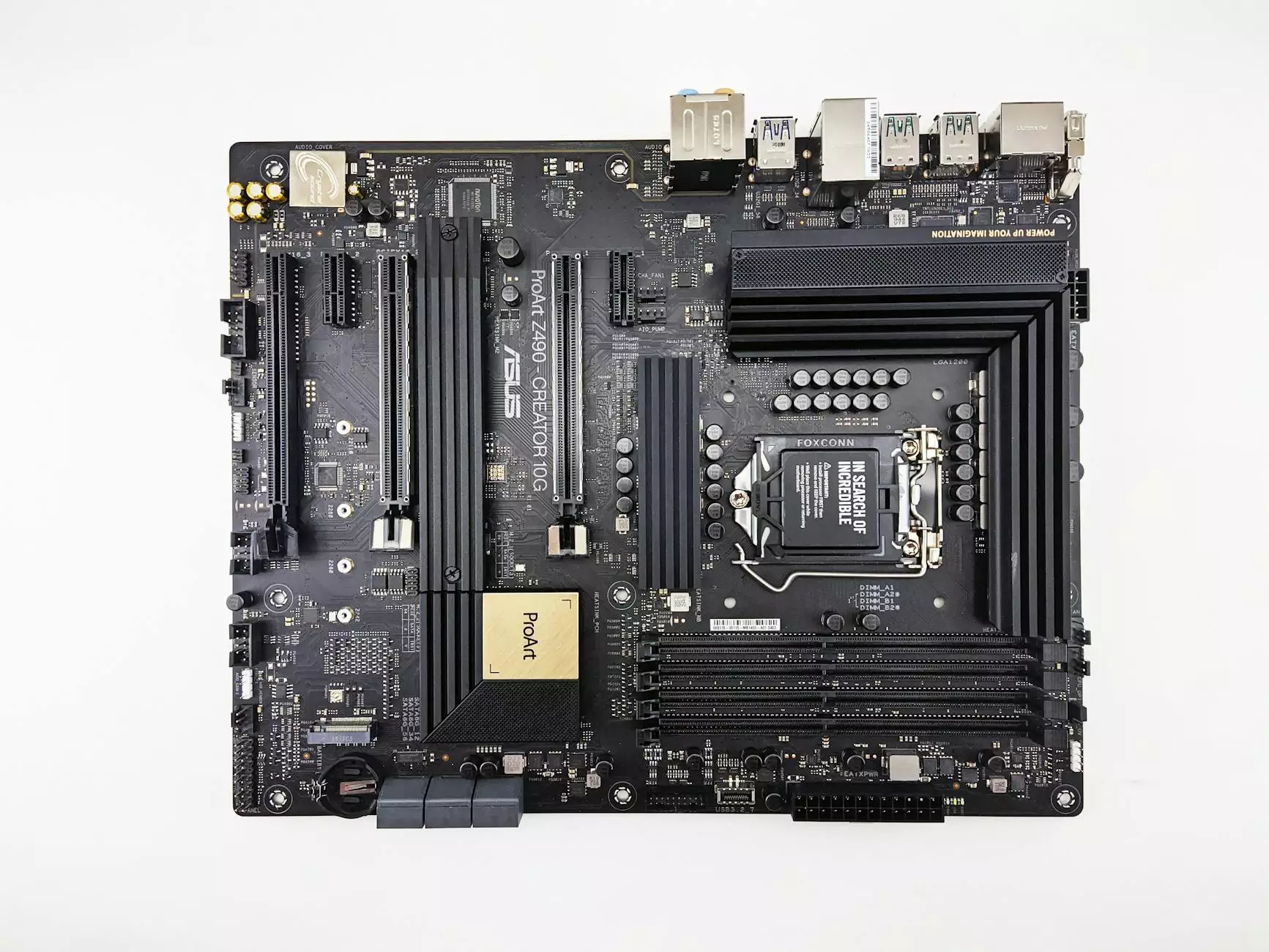Understanding Industrial Blades: A Comprehensive Guide

In the realm of professional services, few tools are as crucial as industrial blades. These precision-engineered tools are designed to perform a myriad of tasks across various industries, from manufacturing to woodworking. Their importance in achieving efficiency and accuracy cannot be overstated. In this detailed article, we will delve into the intricacies of industrial blades, examining their types, applications, benefits, and essential maintenance practices to ensure optimal performance.
What Are Industrial Blades?
Industrial blades are specialized cutting tools used in various industrial settings. Defined by their durability and precision, these blades come in numerous shapes and sizes, tailored for specific applications. They can cut through an array of materials, including metals, plastics, wood, and more, making them indispensable in manufacturing processes.
Manufactured from high-quality materials, industrial blades are designed to withstand the rigors of heavy use. They are usually made from hardened steel, carbides, or specialized alloys, ensuring a long lifespan and superior cutting capabilities. Understanding the types of industrial blades available is essential for selecting the right blade for the job.
Types of Industrial Blades
The world of industrial blades is vast, consisting of various types designed for specific functions. Here are some of the most commonly used industrial blades:
- Guillotine Blades: Used primarily in paper and packaging industries to make straight cuts with precision.
- Shear Blades: Essential for metal fabrication, these blades are used to cut sheet metal and other materials.
- Circular Saw Blades: Known for their efficiency in cutting wood, metal, and plastic; they come in various diameters and tooth configurations.
- Band Saw Blades: Ideal for cutting irregular shapes and curves in wood and metal, these blades are flexible and versatile.
- Knife Blades: Used in various applications, from food processing to industrial cutting; they come in different styles, including straight and serrated.
- Router Bits: Essential for woodworking, these blades help shape and cut materials with precision.
Applications of Industrial Blades
Industrial blades have widespread applications across various sectors. Here, we explore some critical areas where these blades play a vital role:
Manufacturing
In the manufacturing sector, industrial blades are crucial for processing materials. They help in cutting, shaping, and assembling products efficiently. In industries such as automotive, aerospace, and electronics, precision cutting is necessary to meet stringent quality standards.
Food Processing
The food industry relies heavily on specialized blades for slicing, dicing, and chopping. From meat processing to vegetable slicing, industrial blades ensure hygiene and precision. Blades used in food production must meet health and safety regulations, requiring regular maintenance to avoid contamination.
Packaging
Packaging industries utilize industrial blades for creating cardboard boxes, plastic wrap, and other packaging materials. These blades must provide clean cuts to ensure the integrity of the packaging process.
Woodworking
Woodworkers depend on various types of blades to shape and finish wood. From circular saw blades for cutting large sheets to router bits for crafting intricate details, industrial blades are essential in the woodworking industry.
Benefits of Using Industrial Blades
Investing in high-quality industrial blades provides numerous advantages for businesses:
- Increased Efficiency: Precision blades enhance cutting speed and accuracy, resulting in efficient production processes.
- Cost-Effective: Durable blades reduce the frequency of replacements, leading to long-term savings.
- Improved Safety: Well-designed blades minimize the risk of accidents in the workplace, ensuring a safer environment for employees.
- Versatility: Various blade types cater to different materials and applications, offering flexibility for businesses.
Knife Sharpening: The Key to Longevity
Whether used in an industrial or culinary context, proper knife sharpening is vital for maintaining industrial blades. Regular sharpening ensures that blades remain effective, reducing the risk of damage and improving safety. Here’s how to maintain the sharpness and integrity of your blades:
When to Sharpen Your Blades
Recognizing when to sharpen blades is essential for maintaining their performance. Signs that your blades need sharpening include:
- Increased cutting resistance, requiring more force to make cuts.
- Visible nicks or dull edges that affect precision.
- Inconsistent cutting quality, resulting in uneven finishes.
Sharpening Techniques
Different techniques can be employed for sharpening industrial blades:
- Honing: This method involves using a honing rod or stone to realign the blade’s edge, ideal for minor touch-ups.
- Grinding: Using a bench grinder or belt sander, this technique removes material from the blade to create a sharp edge.
- Professional Sharpening Services: For complex or high-precision blades, seeking professional knife sharpening services is recommended.
Choosing the Right Industrial Blade
With many options available on the market, selecting the right industrial blade for your needs can be daunting. Here are some factors to consider:
Material Compatibility
Understanding the materials you will be cutting is crucial. Ensure the blade you choose is compatible with the material's thickness and density.
Blade Type and Geometry
The geometry of the blade plays a vital role in its cutting performance. Consider whether you need straight, serrated, or specialized shaped blades.
Quality and Durability
Always choose blades from reputable manufacturers. High-quality blades made from durable materials will offer longevity and consistent performance.
Cost Considerations
While it might be tempting to go for cheaper options, investing in quality industrial blades will save money in the long run. Higher initial costs often translate to better longevity and performance.
Conclusion
In conclusion, industrial blades are essential components in various industries, delivering efficiency, precision, and reliability. Understanding the types of blades, their applications, and maintenance practices will empower businesses to leverage them effectively. At SZ Blade, we are committed to providing high-quality industrial blades and professional knife sharpening services that meet the diverse needs of our clients. By investing in the right blades and maintaining them properly, businesses can ensure long-term operational success and productivity.









